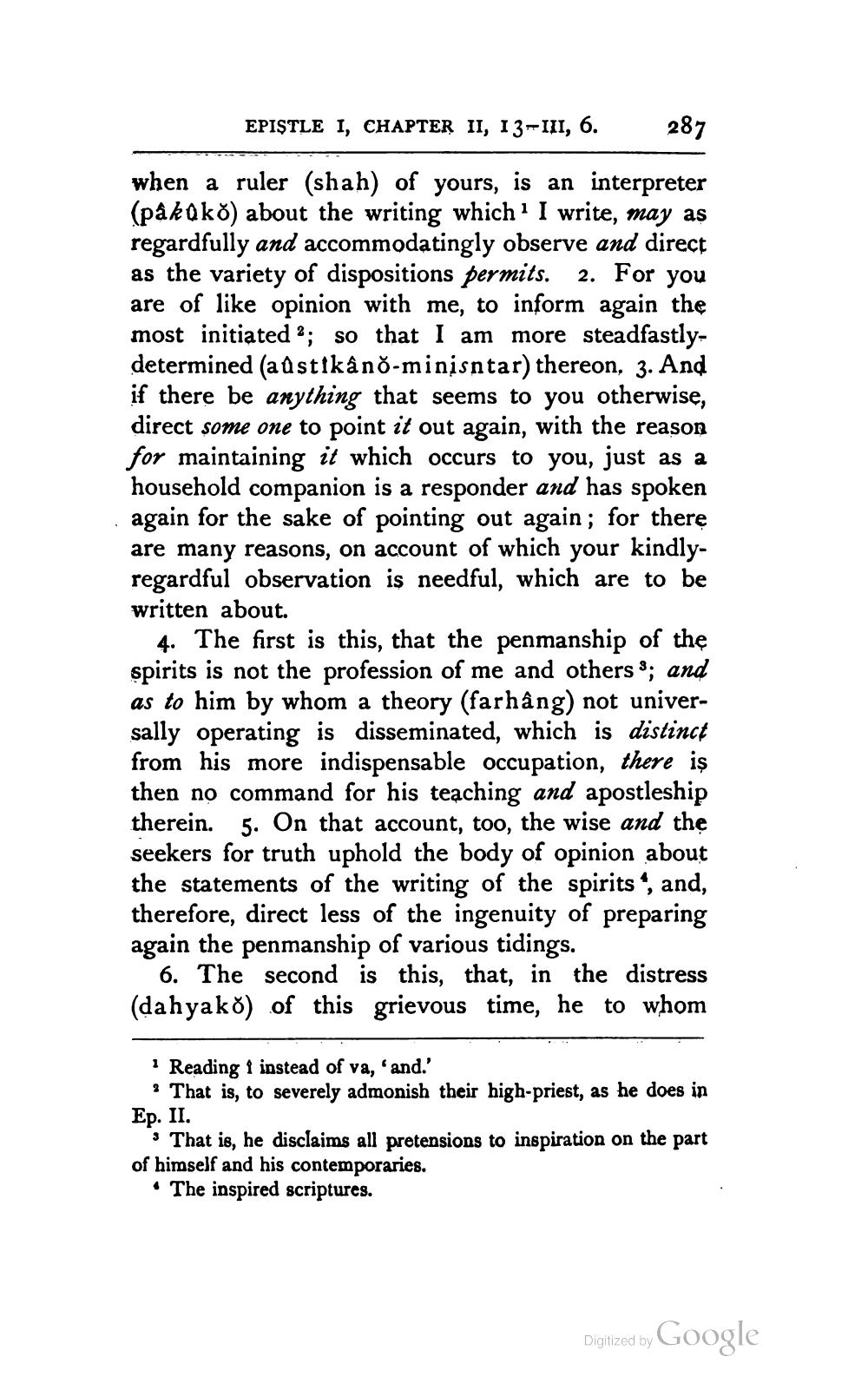________________
EPIŞTLE I, CHAPTER II, 13-III, 6.
287
when a ruler (shah) of yours, is an interpreter (påkoko) about the writing which I write, may as regardfully and accommodatingly observe and direct as the variety of dispositions permits. 2. For you are of like opinion with me, to inform again the most initiated 2; so that I am more steadfastlydetermined (allstikâno-minisntar) thereon, 3. And if there be anything that seems to you otherwise, direct some one to point it out again, with the reason for maintaining it which occurs to you, just as a household companion is a responder and has spoken again for the sake of pointing out again; for there are many reasons, on account of which your kindlyregardful observation is needful, which are to be written about.
4. The first is this, that the penmanship of the spirits is not the profession of me and others s; and as to him by whom a theory (farhâng) not universally operating is disseminated, which is distinct from his more indispensable occupation, there is then no command for his teaching and apostleship therein. 5. On that account, too, the wise and the seekers for truth uphold the body of opinion about the statements of the writing of the spirits ", and, therefore, direct less of the ingenuity of preparing again the penmanship of various tidings.
6. The second is this, that, in the distress (dahyako) of this grievous time, he to whom
Reading i instead of va, 'and.' ? That is, to severely admonish their high-priest, as he does in Ep. II.
3 That is, he disclaims all pretensions to inspiration on the part of himself and his contemporaries.
• The inspired scriptures.
Digitized by Google




